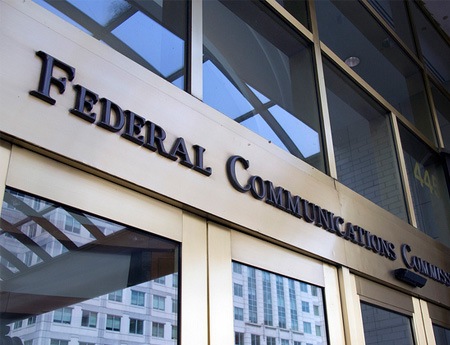Broadcasters Petition FCC for ATSC 3.0 Rollout

The smarter way to stay on top of broadcasting and cable industry. Sign up below
You are now subscribed
Your newsletter sign-up was successful
A coalition of commercial broadcasters, noncommercial broadcasters and tech companies have asked the FCC to approve voluntary, market-based rollout of a new TV transmission standard, ATSC 3.0, and they want to start now.
That came in a joint petition filed by the Consumer Technology Association (CTA), National Association of Broadcasters (NAB), America's Public Television Stations (APTS) and the Advanced Warning and Response Network (AWARN) Alliance.
Related: Stations Bring New Tech Wish Lists to Las Vegas
The next-gen system would allow for interactivity, ultra high-definition, advanced emergency alerts (where AWARN comes in), more channels in the same bandwidth, mobile broadcast TV, and datacasting, all ways for broadcasters to remain competitive in a multi-platform world.
According to the petition, the FCC would approve the standard as an option for both broadcasters and receiver manufacturers and for permission to simulcast while the new standard is being deployed so service to viewers would not be interrupted—the new transmission standard is not compatible with current sets.
Related: ATSC 3.0 to Play Big at NAB Show
"With these changes, broadcasters will have the ability to deploy a new and dramatically improved service to the public without requiring any additional spectrum or government assistance," the petitioners said.
The smarter way to stay on top of broadcasting and cable industry. Sign up below
They are suggesting a symbiotic approach to the rollout, with a temporary host broadcaster in a market simulcasting the signals of those broadcasting in 3.0, and one of those 3.0 stations returning the favor by delivering the host station in the new format.
Related: One Media, TeamCast Experimenting With ATSC 3.0, SFN Tests
"No additional spectrum or government funds are required for the new standard, and consumers would have no equipment mandates," NAB said in announcing the petition. "Pay-TV providers’ carriage of broadcasters’ Next-Gen TV standard signals would largely be determined through business agreements."
The petition asks for three things:
"First, we ask the Commission to approve the Next Generation TV transmission standard as a new, optional standard for television broadcasting.
"Second, we ask the Commission to approve certain rule changes to permit local simulcasting to enable Next generation TV to be deployed while ensuring that broadcasts in the current DTV standard remain available to viewers.
"Third, we ask the Commission to specify that Next Generation TV transmission is 'television broadcasting' in parity with the current DTV standard, and otherwise to conform Sections 73, 74 and 76 of its rules to permit the deployment of this innovative new standard."
Related: ATSC 3.0 Passes Key Test, But Is It Ready to Graduate?
“We are delighted to see the consumer electronics and public safety industries join broadcasters in taking our joint industries into the 21st century with a dramatic improvement in our distribution capabilities," said David Smith, president of Sinclair Broadcast Group, which has been a leading voice for next-gen broadcast transmissions. "Freeing the broadcasting industry as a powerful engine of innovation has been Sinclair’s long-sought goal. This petition is an important first step, and our hope is that the FCC will move with great speed to unleash that innovation.”
The petition comes on the eve of the National Association of Broadcasters convention as well as the eve of a broadcast incentive auction that will feature a digital spectrum repack/remake. Broadcasters have argued that the transition to a new standard should not wait for that process to sort itself out.
Contributing editor John Eggerton has been an editor and/or writer on media regulation, legislation and policy for over four decades, including covering the FCC, FTC, Congress, the major media trade associations, and the federal courts. In addition to Multichannel News and Broadcasting + Cable, his work has appeared in Radio World, TV Technology, TV Fax, This Week in Consumer Electronics, Variety and the Encyclopedia Britannica.

